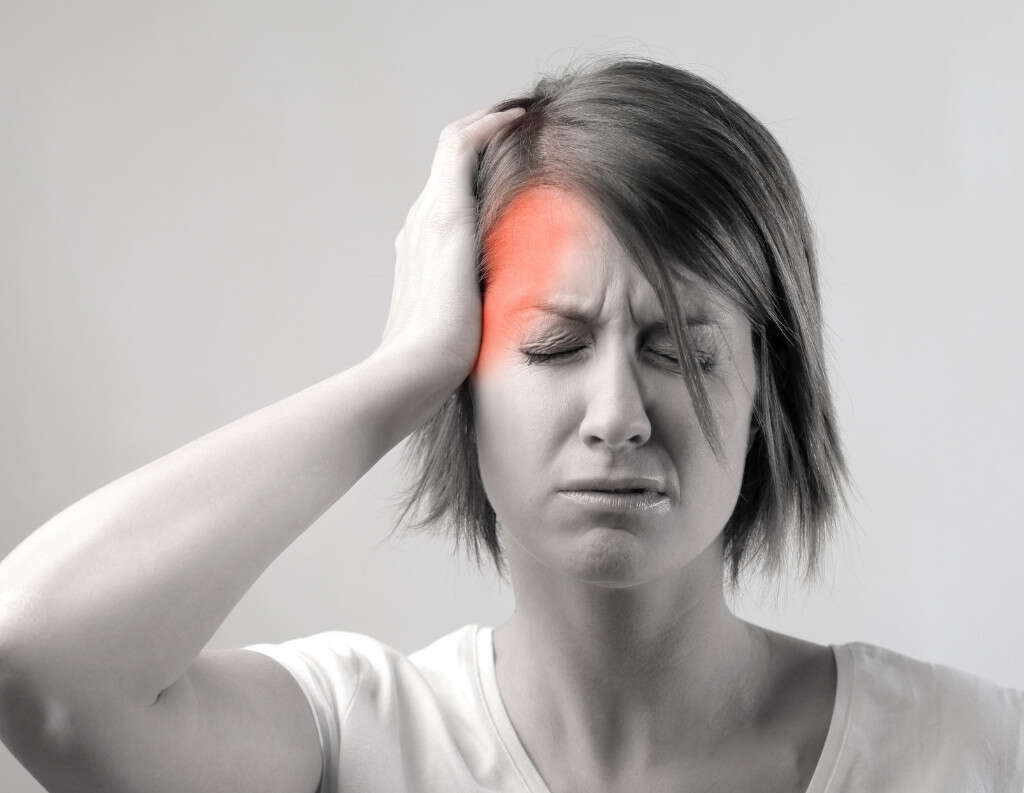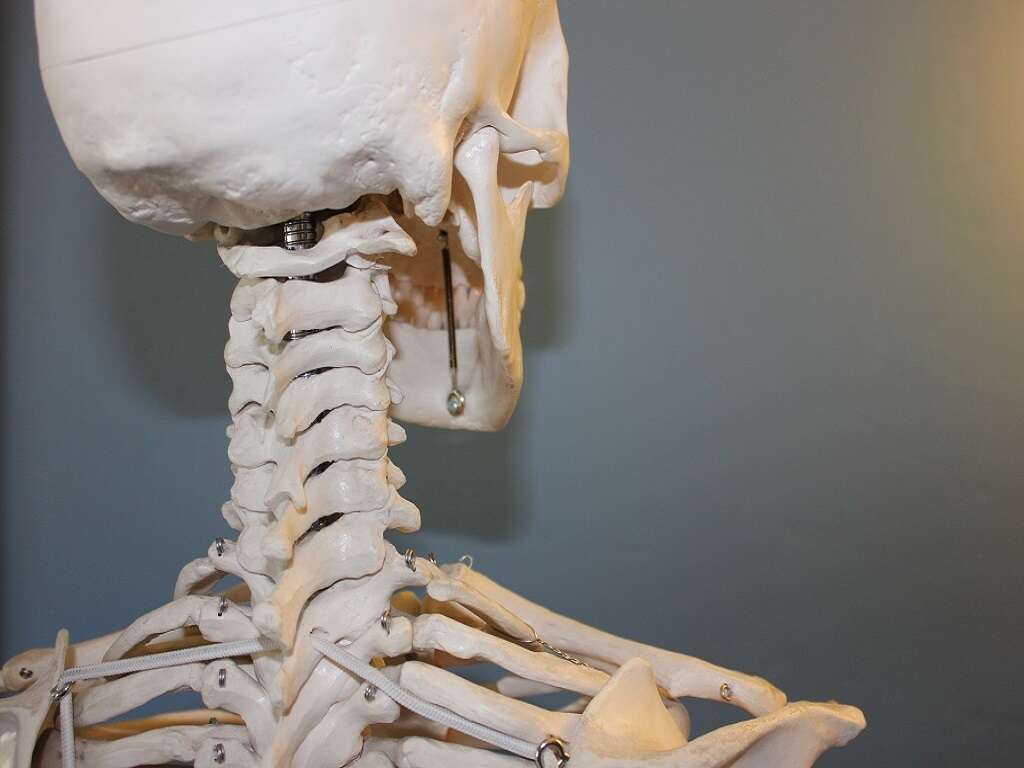10 Common Types of Headaches
According to the World Health Organization, headaches affect half of the world’s adult population every year. This makes it one of the most common illnesses. But not all headaches are the same. Some headaches come in a flash and then go, others stick around for days, some are splitting, and others cause a dull feeling.
There are two main categories of headaches: primary and secondary. Primary headaches occur as a result of physical or chemical problems within the structural components of the head, including the brain, nerves, muscles, and blood vessels. Secondary headaches occur when an underlying condition leads to stimulation of the nerves in the head, triggering the feeling of pain.
In each of the two headache categories, there are many specific types of headaches. Below, you will find 10 of the most common types of headaches.

Type #1: Tension Headaches
These are common primary headaches. In most cases, tension headaches affect both sides of the head. They are dull, constant, and may last for between half an hour and several hours. However, tension headaches are unlikely to stop you from carrying on with your daily activities.
While it is not clear what really causes tension headaches, there are some known triggers. These triggers include stress, depression, anxiety, sleep disturbances, dehydration, bad posture, and lack of exercise. If you get tension headaches, it may help to identify the possible triggers. This can help you to avoid them, which may reduce or stop them.

Type #2: Migraines
A migraine is an intense, throbbing primary headache that affects one side of the head. It occurs as a result of the production of an inflammation-causing substance within the brain. This substance causes chronic pain around nerves and blood vessels in the head.
Migraines are a recurring type of headache that may be triggered by foods such as cheese, food additives, alcohol, and caffeine. Other migraine triggers include stress, dehydration, sensory stimuli like flashing lights, and change in routine. They can last for hours or days at a time and are usually so bad that they interfere with the performance of normal activities. Although migraines can occur in people of any age, they are more common in those in the 35 to 45 years age group. They also affect more women than men.

Type #3: Cluster Headaches
Another type of primary headache, most cluster headaches set in suddenly and last for between 15 minutes and 2 to 3 hours. They are severe headaches that affect one side of the head and usually around an eye. The affected side may become swollen and red, and the eyelid may droop. The nostril of the affected side may also get stuffy and runny.
Cluster headaches usually affect people in their 20s or older. They may recur for up to eight times in a day and for weeks or months at a time. In between the cluster headache periods are headache-free periods that may last for months or even years.

Type #4: Sinus Headaches
Sinus or allergy headaches result from an allergic reaction within the sinuses. They largely affect the sinus areas including around the nose, below the eyes, and in the forehead. This secondary type of headache is common in people who are prone to getting chronic sinus inflammations or seasonal allergies. Some sinus headaches may be symptoms of sinus infections.
Whatever the cause of the sinus headache, inflammation leads to a buildup of mucus within the sinus. This increases internal pressure, which causes the characteristic sinus headache. Clearing the mucus buildup by using decongestants, nasal steroid sprays, or antihistamines can help relieve the headache. However, if a sinus headache is a result of an infection, it is necessary to take an antibiotic.

Type #5: Exertion Headaches
These are secondary headaches that occur suddenly after intense physical exertion. The physical activities that may lead to exertion headaches include intense workouts, running, lifting weights, boxing, and sexual intercourse, among others.
It is assumed that exertion headaches occur due to increased flow of blood into the head. This exerts increased pressure within the blood vessels, leading to a throbbing headache that is not localized to any one part of the head. Most exertion headaches go away within a short time once blood flow steadies to the norm. However, if exertion headaches become a recurrent experience, consult a doctor to rule out any underlying issues.

Type #6: Medication Overuse Headache
Medication overuse headache, also called rebound headache, is a common secondary type of headache. It occurs frequently, usually daily, and presents with symptoms that are similar to those of migraine or tension headaches. Rebound headaches occur as a result of overuse of some medications. NSAIDs like aspirin and ibuprofen, acetaminophen, opioids, and triptans like sumatriptan are some of the culprit medications.
It is distressing that rebound headaches are caused by the very medication that is prescribed to treat headaches. Therefore, if you have taken any of the above pain medications for more than 15 days in a month and you still have headaches, it is advisable to stop and talk to a doctor about it. Take note that you may still get medication overuse headaches for up to 10 days after you stop taking the offending medication.

Type #7: Hormone Headaches
This type of secondary headache affects women due to hormone fluctuations that occur during the menstrual cycle. Hormonal fluctuations especially around the time of the menses cause hormonal imbalance that may trigger pain signals in the head. This type of headache normally begins a few days before the onset of menses or during the menses for which reason it is sometimes called menstrual headache. In some women, it may occur during ovulation. Use of hormone replacement therapy or birth control pills can also lead to hormone headaches.
Symptoms of hormone headaches are similar to those of migraines and are treated similarly. If they cause a lot of discomfort, you can use NSAIDs to get some relief. In case the headaches are caused by hormone-based birth control methods, you might consider switching to an alternative method.

Type #8: Hypertension Headaches
This type of headache occurs when blood pressure rises too high. A hypertension headache presents with pulsating pain that may also be accompanied by vision changes, shortness of breath, nosebleeds, and numbness. It normally affects both sides of the head and is aggravated by physical activity. It is most common in people who have high blood pressure. This includes those that may have undiagnosed high blood pressure.
A hypertension headache is a dangerous occurrence that should be handled as the emergency that it is. Hypertension headaches generally go away once the blood pressure is under control and do not recur as long as blood pressure remains within a normal range.

Type #9: Caffeine Headaches
Caffeine headaches occur in people who habitually take high amounts caffeine, especially from coffee. You are likely to get a caffeine headache if you consume 400 milligrams or more of caffeine daily. This is equivalent to four cups of coffee.
Caffeine headaches may also occur in people who take 200 milligrams or more of caffeine daily over a period of 2 weeks or more. However, in this case, the headache occurs upon withdrawal from taking caffeine. This typically happens within the first 24 hours since the last intake. The headache may be accompanied by other symptoms such as difficulty concentrating, nausea, tiredness, mood changes, and irritability. Caffeine headaches stop within 7 days of withdrawal. You can also get relief by drinking some coffee.

Type #10: Posttraumatic Headaches
As the name suggests, this type of headache occurs as a result of a serious injury to the head. It may start soon after, a few days after, or long after the injury. A posttraumatic headache normally presents with a dull pain that may vary in intensity at different times. It may last for days, weeks, or months depending on the type of injury and resultant damage.
Head-injury headaches may also be accompanied by other symptoms such as tiredness, irritability, trouble concentrating, light-headedness, vertigo, vomiting, and seizures. A headache that occurs after an injury and seems to be getting worse should not be taken for granted. Take the patient to a doctor for assessment and treatment.












